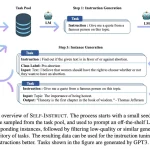Modern businesses rely heavily on technology for all aspects of their operations, which exposes them to cyber attacks.
Startups must prioritize cybersecurity to avoid costly hacks that could cripple their business. The best way to secure their operations is with an effective defense system consisting of firewalls, antivirus software and intrusion detection systems.
1. Unsecured Networks
Companies that successfully recover from hacks with their reputations and customer bases intact tend to be those that take proactive steps when it comes to cybersecurity. Startups need to stay abreast of hacking trends as well as periodically test and review their security policies in order to remain successful.
Cybercriminals are constantly developing new approaches. While ransomware may be one of the primary threats today, next week it could be replaced by something even more serious.
Start-ups operating under lean principles with limited staffs can be especially vulnerable to disorganized data. To protect themselves, startups with lean principles should review who has access to what information and restrict it according to job necessity. Backing up and encrypting data are also vital, preventing hackers from holding it hostage if they attempt to hold onto your devices for ransom payments.
2. Unsecured Software
Small business owners sometimes assume cybercriminals will target bigger companies over them; however, every organization is vulnerable. A data breach or hack can quickly put an underperforming startup out of business; 60% of such incidents result in bankruptcy within 6 months.
Cyber threats are constantly shifting and evolving; thus, startups must remain vigilant regarding their security framework and policies. Even today’s most prevalent ransomware or malware may become obsolete tomorrow and replaced with something even more sophisticated.
Take steps to educate your team about emerging threats and encourage them to read cybersecurity blogs regularly, in order to protect your business from hackers while keeping everyone alert of any phishing attacks or backdoors that could compromise it.
3. Unsecured Hardware
Anything inserted or accessible via a computer’s hardware is an entryway for potential threats, from CDs and USB drives to keyboards and mice. Motion-sensitive alarms that notify when laptops, tablets and other portable devices leave a work station are moved, full disk encryption to safeguard data theft protection and malware are among the many methods startups can implement to safeguard their hardware against cyber-threats.
Though hackers tend to focus on major companies, small businesses account for over half of all data breaches and cyberattacks. This is likely because many smaller firms lack a comprehensive cybersecurity plan or the resources that larger ones have dedicated to cybersecurity efforts.
4. Insecure Internet Connections
Hackers siphon billions from startups every year through phishing attacks and malware infection, infiltrating computers with harmful software which steals data, compromises services and operations, or can take over an individual device.
Small businesses can protect themselves from cyber attacks with the use of a VPN that encrypts all their device traffic and features two-factor authentication to make it harder for hackers to eavesdrop and intercept private information.
Startups that prioritize agility and speed often find it challenging to allocate enough resources for cybersecurity measures. Instead of developing all the skillsets needed in-house for cybersecurity measures, outsourcing this task to a reputable cybersecurity provider like Indusface allows your team to work at its desired speed without jeopardizing data security.
5. Unsecured Cloud Storage
Nowadays it is impossible to imagine any business operating without some form of technology. From keeping in touch with clients via email to running an entire ecommerce venture, modern businesses rely on computers and IT systems in order to thrive.
Startups that access the internet gain many benefits; however, their access also makes them vulnerable to cyberattacks due to lacking stringent cybersecurity measures, poor awareness about cyber threats and limited budget allocation – making them attractive targets for hackers.
Cybersecurity risk management can help minimize these threats. This process entails mapping digital assets and searching the internet and dark web for threat references, prioritising vulnerabilities, and enriching indicators of compromises (IOCs). Cybersecurity risk management is an integral component of protecting any organization against cyberattacks while creating an organizational security culture within its startup counterparts.












